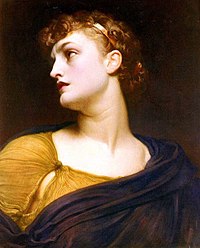
______________________________________________________________________
The presidential election is a time of fighting and conflict. Candidates are constantly trying to pull the other down. They lie, and make promises they plan to break, all to get elected in the end. I know in my family, there is a large amount of talk about politics, both within my immediate family, and with my relatives. Luckily I don't have any who fear Obama simply because he is black. This country is so preoccupied with race it is scary. it may be hard not to see race in this day in age, but it is easy to not let it matter.
It is easy to complain about the way our election system works as well. A bunch of old, white guys making decisions in a large room is not exactly the most settling thought. The lying and cheating that goes on is also not appealing. The electoral college is an old and long-standing way of voting, and America doesn't look like it is going to change any time soon.
A lot of creativity comes out of the campaign. Graphic design, political cartoons, comedy sketches, and video adds. They say politics brings out the worst in people, but sometimes it is just the opposite.


 Perhaps popular among shakespeare fanatics (I couldn't say), the version of Macbeth we viewed in class was certainly a different way of looking at the play (compared to the main stream version we looked at in high school). The play harbors themes of power, guilt, and the supernatural.
Perhaps visually unique, the play still didn't do it for me. The 'world war II-ish' costume was a choice I found random instead of helpful or intriguing. The movie 'Looked' like a play, with it's scene changes, and low-key sets, but was staged like a film. The witches (nurses) who open the film, although quite scary, did not convey the same message that the witches in the play. The witches in the movie were simply creepy, but did not strike me as 'Magical'.
Perhaps popular among shakespeare fanatics (I couldn't say), the version of Macbeth we viewed in class was certainly a different way of looking at the play (compared to the main stream version we looked at in high school). The play harbors themes of power, guilt, and the supernatural.
Perhaps visually unique, the play still didn't do it for me. The 'world war II-ish' costume was a choice I found random instead of helpful or intriguing. The movie 'Looked' like a play, with it's scene changes, and low-key sets, but was staged like a film. The witches (nurses) who open the film, although quite scary, did not convey the same message that the witches in the play. The witches in the movie were simply creepy, but did not strike me as 'Magical'.
 Henry VIII by William Shakespeare, can easily be related to any love affair of modern times. Although a bit more violent, jealousy and a lust for power are common traits in both Shakespeare's man and the modern man. Like most dramas of the today, this play displays a complicated web of dramatic relationships. Between Wolsey, King Henry, The Pope, Katherine, and all those under Cardinal Wolsey.
There are many men in history that get bored with their wives, and there are some now labeled as 'Murderers' who have them killed. Henry is no exception. His secretive relationship with Ann is conflicted because of the relationships they have genetically, but Henry's mind overcomes this.
Henry's royalty allow him to get away with many things that could have gotten killed had he been someone lower on the food chain. The power Kings and Queens possess in King Henry's day is almost absolute. This is a scary thought weather one is Queen Catherine, or a peasant of this day. This power is a large factor in what makes a king or queen. The fact that Henry is able to go against the pope's wishes shows that even though the(supposedly) highest being, or being closest to God, can be thwarted. The pope was a very important figure, and King Henry was simply able to thrust him aside.
Henry VIII by William Shakespeare, can easily be related to any love affair of modern times. Although a bit more violent, jealousy and a lust for power are common traits in both Shakespeare's man and the modern man. Like most dramas of the today, this play displays a complicated web of dramatic relationships. Between Wolsey, King Henry, The Pope, Katherine, and all those under Cardinal Wolsey.
There are many men in history that get bored with their wives, and there are some now labeled as 'Murderers' who have them killed. Henry is no exception. His secretive relationship with Ann is conflicted because of the relationships they have genetically, but Henry's mind overcomes this.
Henry's royalty allow him to get away with many things that could have gotten killed had he been someone lower on the food chain. The power Kings and Queens possess in King Henry's day is almost absolute. This is a scary thought weather one is Queen Catherine, or a peasant of this day. This power is a large factor in what makes a king or queen. The fact that Henry is able to go against the pope's wishes shows that even though the(supposedly) highest being, or being closest to God, can be thwarted. The pope was a very important figure, and King Henry was simply able to thrust him aside.




